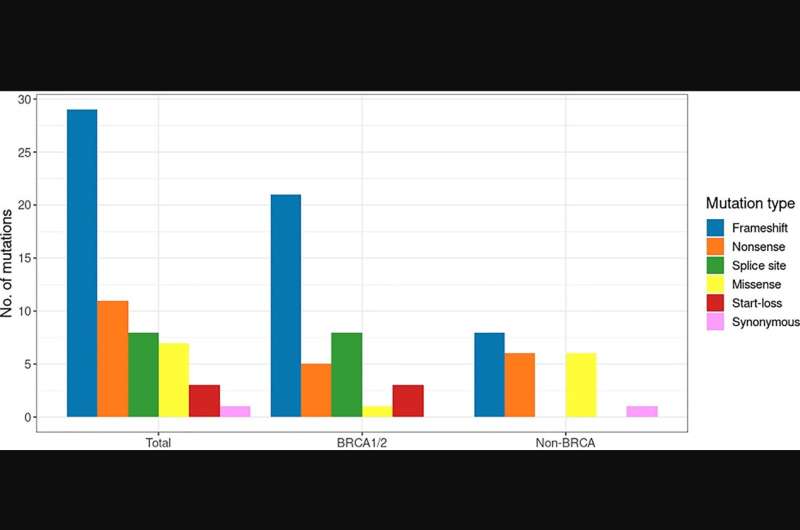This article has been reviewed according to Science X's editorial process and policies. Editors have highlighted the following attributes while ensuring the content's credibility:
fact-checked
peer-reviewed publication
proofread
Genetic predisposition to early breast cancer in Kazakh women

A new research paper titled "Determination of genetic predisposition to early breast cancer in women of Kazakh ethnicity" has been published in Oncotarget.
Breast cancer (BC) is the most common type of cancer among women in Kazakhstan. To date, little data are available on the spectrum of genetic variation in Kazakh women with BC.
In this new study, researchers from the Institute of Genetics and Physiology, Kazakh Institute of Oncology and Radiology, Al-Farabi Kazakh National University, and Asfendiyarov Kazakh National Medical University aimed to identify population-specific genetic markers associated with the risk of developing early-onset BC and test their association with clinical and prognostic factors.
"To our knowledge, this is the first study using NGS [next-generation sequencing] technology to study the genetic predisposition to early-onset BC women from Kazakhstan and assess their impact on the patients' clinical outcomes," the researchers state.
The study included 224 Kazakh women diagnosed with BC (age ≤40). Entire coding regions (>1700 exons) and the flanking noncoding regions of 94 cancer-associated genes were sequenced from blood DNA using MiSeq platform. The researchers identified 38 unique pathogenic variants (PVs) in 13 different cancer-predisposing genes among 57 patients (25.4%), of which 6 variants were novel.
In total, 12 of the 38 distinct PVs that may be found in this population were detected recurrently, including BRCA1 c.5266dup, c.5278-2del, and c.2T>C, and BRCA2 c.9409dup and c.9253del. BRCA1 carriers were significantly more likely to develop triple-negative BC (OR = 6.61, 95% CI 2.44–17.91, p = 0.0002) and have family history of BC (OR = 3.17, 95% CI 1.14–8.76, p = 0.03) compared to non-carriers.
"This study allowed the identification of PVs specific to early-onset BC, which may be used as a foundation to develop regional expertise and diagnostic tools for early detection of BC in young Kazakh women," the researchers conclude.
More information: Gulnur Zhunussova et al, Determination of genetic predisposition to early breast cancer in women of Kazakh ethnicity, Oncotarget (2023). DOI: 10.18632/oncotarget.28518
















